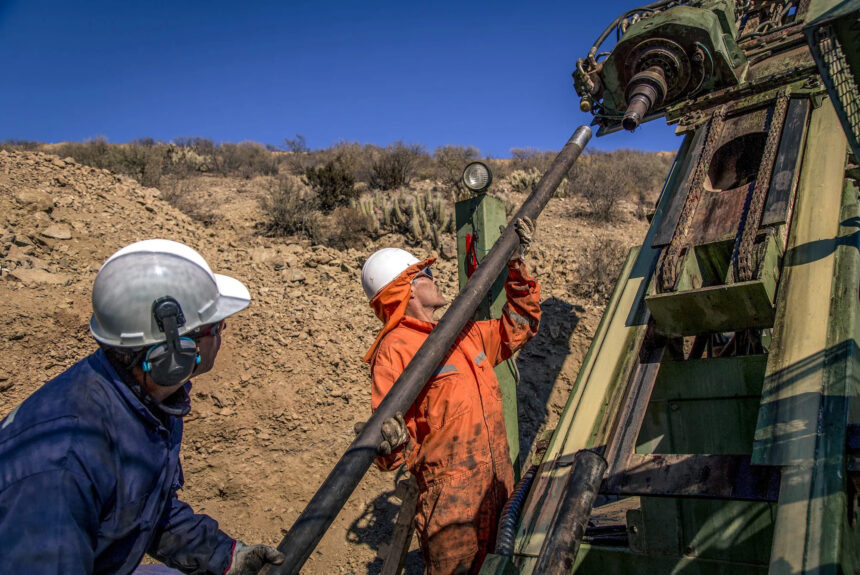From laptops and cell phones to oil purification, cobalt is literally elemental to powering modern society. While the metal has certainly made life more efficient and comfortable, its supply chain is riddled with cases of human rights abuses and environmental degradation. The Chilean Cobalt Corp. (C3) is helping to solve these problems by diversifying the supply of cobalt in an ethically and environmentally responsible manner.
68 percent of worldwide cobalt production occurs in the Democratic Republic of Congo (DRC), which also owns an estimated 48 percent of global reserves. The high quantity of DRC cobalt is matched with high-quality cobalt. While the global average of mineral ores contains .6 to .8 percent of cobalt, DRC’s ores yield concentrations of 3 percent.
>>>READ: Deep Sea Extraction Can Provide the Rare Earth Minerals We Need
Despite the DRC’s comparative advantage in cobalt production, domestic firms own very little of the reserves, mining operations, and processing. China owns as much as 80 percent of the DRC’s reserves and processes three-quarters of the world’s cobalt.
While China’s monopoly of the cobalt supply chain is concerning by itself, the harsh working conditions of these mines are the most troubling. Researchers from Harvard have reported that open-pit mining in the DRC is rife with child labor and direct human exposure to toxic cobalt dust. Poor mining practices in the country have stripped the landscape of trees and contaminated local water supplies.
Unfortunately, these violations are not uncommon. The Business and Human Rights Resource Centre has recorded 102 violations of human rights and environmental laws at 39 Chinese mines in 18 countries between January 2021 and December 2022. The Zimbabwe Environmental Law Association also reports that workers go months without receiving wages and speaking out against these injustices can prove fatal. Tesla has begun to shift away from cobalt batteries and Apple has announced that it will only use recycled cobalt by 2025 because of these violations.
Reducing the ethical environmental consequences of cobalt will require breaking China’s monopoly on the metal. C3 is doing so by sourcing cobalt from Chile. The company is currently working on the 2,635-hectare (6,511-acre) La Cobaltera project located in Chile’s historic San Juan cobalt district.
While the project is still in a more exploratory phase—C3 has mostly conducted geological surveys and brownfield testing—it is attracting international interest. In June, the company received a $317 million letter of interest from the US EXIM Bank.
Recently, the firm signed an agreement with Glencore, one of the world’s largest commodity companies, and U.S. Strategic Metals (USSM) to explore domestic downstream processing of cobalt and copper intermediate products from the La Cobaltera project. Through this agreement, C3 will collaborate with USSM to process cobalt from La Cobaltera at USSM’s critical minerals processing site in Missouri. This follows an offtake agreement for cobalt and copper intermediate products that C3 signed with Glencore in July.
>>>READ: Could Solid-State Batteries Accelerate Electric Vehicle Adoption?
This partnership will establish an American-centric cobalt supply chain. And, because Chile is a free trade agreement country, C3 will be able to export its cobalt to the U.S. with fewer restrictions while still maintaining rigorous environmental safeguards. Once fully operational, this will bolster the energy security of America and its allies by reducing China’s control of the global market. Importantly, C3’s Chilean operations adhere to IRMA’s Standards for Responsible Mining, which emphasize environmental stewardship and social responsibility, including safe working conditions and fair pay.
While non-cobalt alternatives like solid state and iron-phosphate batteries are becoming increasingly popular, global demand for cobalt may double by 2030. Increasing and diversifying supply chains, as C3 is doing, will benefit American families through lower prices, and global workers through better labor conditions.
Time will tell how successful C3’s cobalt operations will be, but given the emerging partnerships and excitement from financial lenders, the future of the company and its projects looks bright.
The views and opinions expressed are those of the author’s and do not necessarily reflect the official policy or position of C3.
